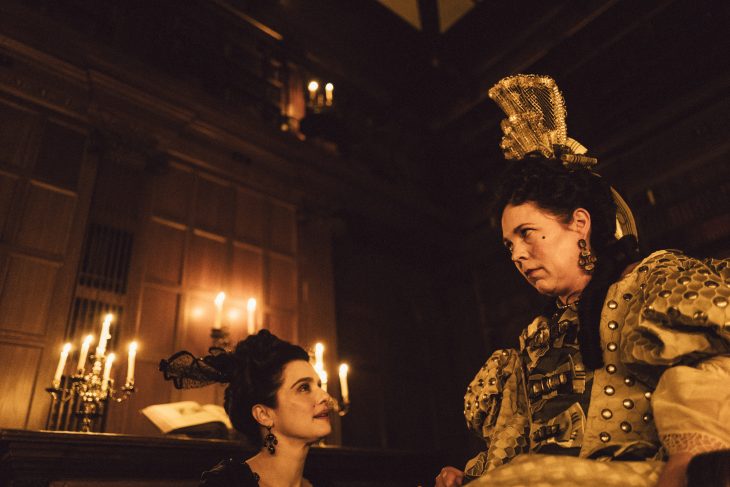The film world is atoning for its crimes against diversity. On screen, strong women are supplanting Disney princesses. Superheroes, once uniformly white and male, are turning multicultural. Gay intrigue is edging out heterosexual romance. Away from the camera, bankable stars force studios to employ minority personnel by adding ‘inclusion riders’ to their contracts.
Film-makers must repent ancient mis-speaks, beg forgiveness and denounce peers accused of transgressions. Abuse allegations against Woody Allen may be unproven, but actors who have taken his shilling disown him and donate their tarnished earnings to #TimesUp.
Unsurprisingly, the current awards season reflects these rectifications. Of the eight nominations for best picture Oscar, six boast diversity credentials. The Favourite scores double points by celebrating both female power and same-sex sex.
The industry’s pride in its redemption is prodigious, even by its own unparalleled standard of self-satisfaction. Nonetheless, a scintilla of doubt can just occasionally be encountered. Might conformity to the unbending requirements of the bien-pensant establishment have exacted a price? Films may be more virtuous, but are they as good?
The official line is that embracing the stories of hitherto neglected minorities can only enrich and enhance cinema’s offering. Yet away from the awards razzmatazz, it is sometimes admitted that this year’s crop of films is far from vintage. Polished acting and smart production design are burnishing some fairly lame material – unsubtle, manipulative and thin. Green Book, for example, has a best picture nomination, but turns the black experience in Jim Crow America into derivative schmaltz.
Flying the right-on flag enables film-makers to get away with lazy, superficial and unconvincing drama. The woke world’s heroes, like Freddie Mercury and journalistic martyr Marie Colvin in A Private War, must have their lives sanitised. Its villains, like Dick Cheney in best picture nominee Vice, must become straightforward monsters.
These flat characters’ stories turn into predictable parables rather than complex and illuminating narratives. Funny Cow seemed set to explore its heroine’s creative achievement in scaling the heights of stand-up comedy. Instead, her experience was used merely to bemoan the wickedness of the men in her life.
Ingrained righteousness protects minority characters from jeopardy. In Can You Ever Forgive Me?, Melissa McCarthy’s Lee Israel can defraud those who befriend her without risking audience disaffection because she’s a feisty female. In Bohemian Rhapsody, Rami Malek’s Freddie Mercury is entitled by his outsider status to remain lovable while being as beastly as he likes.
Cinema’s diversity drive goes beyond moulding subject matter. Particularly vexatious is the scarcity of female directors. Only one woman has ever won the Oscar for best director (Kathryn Bigelow for The Hurt Locker). Studios have tried hard to give women a leg up, and the past year has seen many more female-helmed films. Yet once again, all five of the director nominees are male.
Naturally, prejudice is blamed. Yet, Academy voters’ willingness to recognise woke content suggests that this won’t wash. The harsh truth is that much of the breakthrough work from female directors fell short of expectations. Supposedly ‘snubbed’ films like Lynne Ramsay’s You Were Never Really There, Karyn Kusama’s Destroyer, Susanne Bier’s Bird Box or Mimi Leder’s On the Basis of Sex have scant claim to gold-star status.
We should not be too surprised. To fill quotas, even unofficial ones, you have to lower standards. According to the new orthodoxy, this is worth doing, since only diverse film-makers can tell diversity stories. Yet the season’s biggest feminist and lesbian triumph, The Favourite, and Green Book, were both helmed by pale, stale and straight males.
This is not the first time that cinema has subordinated aesthetic endeavour to promoting the ideology of the ruling elite. Yet now it is not supporting the war effort, or plugging the GPO’s mail service. It is insidiously advancing identitarian attitudes that threaten to deepen social division. For that, it deserves no awards.






Comments